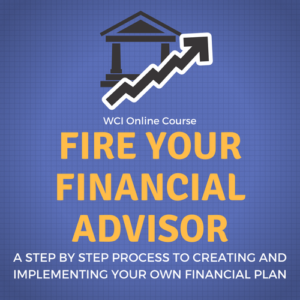There are times in life when we stand at a fork in the road where our future can be greatly altered. Once we choose which tine of the fork to take, it sets in motion many changes that can lead to very different outcomes. When I was recently asked to perform in a musical, I had the option of saying yes or no. No means life goes on as it was. Yes means giving up every weekday evening for the next two months to be at rehearsal and I would need to push back my book publishing schedule in order to have the time needed to learn my lines, eight new songs and choreography for five dance numbers.
After considering my options, I said yes. The experience led to some conversations that could further alter my future. One conversation encouraged me to write a musical. Another dealt with becoming a film producer. These opportunities would not have crossed my plate had I answered no when asked to join the cast.
Many defining moments in our lives have big consequences if we handle them poorly. Following are my recommendations for what to do when facing six common defining moments.
Picking a career
This branch in life is very important. Even though one can switch to a different career/specialty at any time, the consequences of changing careers can be dire. If one spends 13 years becoming a cardiac surgeon, only to realize after two years in practice that it was a mistake, that’s a big chunk of life used poorly. A huge pile of debt may also come along with it.
Think long and hard about what you would like to do during your working years. You will likely spend more than 50% of your adult life in your chosen career. It would be a shame to devote all those years to something you don’t like. Talk with others who are currently in the job you are considering. Learn what the job entails, its good and bad points. Give yourself the best chance of success by going into it with as much information as possible.
Never choose a career based only on the amount of money it makes. That is a path fraught with heartache.
Getting married
There are four big branches in this decision: Who to marry, how much to spend on a wedding, how much to spend on a honeymoon, and where to live.
Whom to marry should be well thought through. Get to know each other very well and ask all the hard questions before becoming one. Before my wife and I were allowed to book a wedding date, we were required by the church to go through a pre-marital class. This class made us discuss questions couples often avoid but will face once they are married. Half of the couples who took our premarital course either postponed or canceled their weddings! I suspect the class weeded out a lot of couples who would have ended up getting a divorce, which is one of the biggest financial disasters one can face.
Some weddings are ridiculously expensive, but it doesn’t cost a lot of money to have a great fun wedding. This is not a time to show off, it’s a time to celebrate with your friends and family. The wedding gown will only be worn once, so do yourself a favor and rent one. Another advantage of renting is not storing it forever. Your wedding day is just one day, don’t blow your future by overspending on your wedding.
The honeymoon is another place couples often spend too much money. A honeymoon is a time for the two of you to get away and enjoy your first days as husband and wife. It really doesn’t matter where you go. But if you borrow money to pay for your honeymoon, you will regret those payments for a long time. Plan a honeymoon you can pay cash for and don’t start your life by going deeper into debt.
Deciding where to live is also very important. One important thing to consider is how close you would like to be to your parents? Living within driving distance of each family will save a fortune in future travel. It also means you can see them more often and they can participate in childcare.
If both families are from the West Coast and you choose to live on the East Coast, you can count on not seeing your family much and consequently your kids will not become close to their grandparents.
Having kids
Another branch point with long-term consequences is having kids. If you plan on having kids, start preparing for it financially long before the kids arrive. I remember one person who asked for my advice about what to do with an inheritance. His first child was to be born in three months. He totally ignored my advice and spent all the money within 30 days of receiving his inheritance. He blew a great opportunity to be proactive and set his family up for success.
When you have kids, expect your budget to change. Be sure to rethink your budget before the kids arrive. Start saving for college, be sure if you want private schooling that you can afford it, figure out what childcare will cost or if one parent will be staying home to care for the kids, get life insurance.
Buying the first house together
Do not buy a house together until after you are married and are living in the location you intend to spend the rest of your life. Yes, you might change your mind and decide to move in the future but give yourself the best chance for success.
About half of all physicians leave their first job within five years. When you move into a new area, rent a home for a while to be sure you are staying before tying yourself down with a home to sell if you leave.
When you do buy a house, plan to pay it off in less than 15 years. This one move could save more than half the amount of interest of a 30-year mortgage.
Buy a house that meets your needs, not the most expensive one you can afford. Paying too high a percentage of your income for a house is a financial disaster that will haunt you for decades. House poor is not a good place to be. Most doctors I speak with who are house poor have grown accustomed to the house they are in and for a long list of reasons are not willing to move to a less expensive house.
Be sure to choose a home less than 15 minutes from work. Most professionals work way too many hours and share a common complaint that they don’t have enough time off to enjoy their families. Strapping yourself with a long commute flies in the face of wanting more time with the family. Living in the suburbs is not worth the loss of family time commuting.
Becoming debt free
Most high-income earners eventually become debt free. They figure out that managing debt is not a great game to play so they decide to eliminate their debt. Many of them were playing the game of “good debt” vs “bad debt” and did not wish to part with any of their “good debt.” Calling it “good debt” was just the rationalization they needed to not have to make extra payments on their mortgages.
Since you will eventually become debt free why not do it now? Once people become free from the bondage of debt, they don’t tend to return to playing that game ever again. Almost everyone I know stayed debt free once they reached that defining moment.
I have heard people talk about how they play the debt interest rate arbitrage game. When I give them a copy of The Doctors Guide to Eliminating Debt they frequently change their plans. I watched one prominent blogger transform from keeping a fund for paying off his mortgage if he needed to, to just writing the check and being done with a game that earned him very little money for his efforts.
Another doctor family had been arguing about paying off their student loan debt for years. She wanted to pay off the student debt and he didn’t. They paid off the student loans only a few hours after reading the book.
Being debt free means your living expenses decrease, which in turn means you can work less. The amount of money required to be saved for retirement falls substantially when there are no debts to service. Stress levels fall as well.
If you don’t want to pay extra on your debts, you can become debt free simply by never borrowing any more money. Eventually, all the loans you are paying will fall to a balance of zero and you will be debt free. That’s a simple choice to make and requires no change in what you are currently doing.
Becoming financially independent (FI)
I think everyone wants to hit this defining moment. The key is not to ruin your life by trying to get there quickly. Make a reasonable plan that will give you a nice life along the way. Trying to save 90% of your income and working lots of overtime, not owning a car, living in a trailer, not traveling, and never buying anything that is not a necessity, is a lousy way to live. Live a life you love without overspending all along your pathway to FI.
Once you reach FI, you won’t need to change anything about your life because you are already living your dream life. You just don’t have to work to earn money any longer. Although you can continue to work if you want, you now have the option to retire financially secure if you want.
Please don’t make big life changes when you reach FI. The concept of reaching FI, quitting work, moving to Arizona, and traveling the world is best done in baby steps. Don’t try to change your life all at once. Retirement and moving are both major life stressors. We all do better if we are not dealing with more than one life stressor at a time.
When you do retire, get used to retirement first. After a year of being retired you can venture into moving to a new area.
Don’t live your life for someday when you reach FI.
Live your life to its fullest every day.
If you have already been through some of these defining moments, you are now living with the path those choices created. But for those you have not been through yet, prepare for their arrival and you will sail through the test. Let those upcoming defining moments launch you into greatness.





